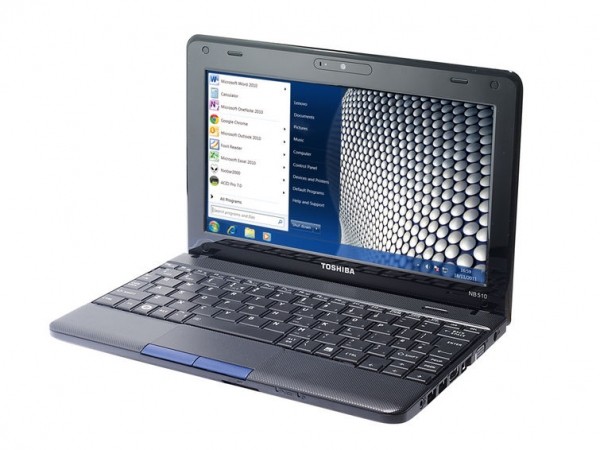Consumer interest in netbooks has waned significantly the last couple of years in the face of competition from tablets and even ultrabooks. Samsung and Dell already showed their willingness to ditch the form factor last year in favor of higher-margin products, and now it’s Toshiba’s turn to sound the netbook death knell — in the US at least. The firm just confirmed to Liliputing it has no plans to offer any new netbooks there.
The first netbook skipping the US market would be the Intel Cedar Trail-based Toshiba NB510, which was shown at CES and is still expected to hit UK retail shelves. The 10.1” system is powered by a 1.6GHz Atom N2600 processor, Intel GMA 3600 graphics, 2GB RAM, a 1024 x 600 display and 320GB of storage space.

For the US, Toshiba wants to focus its efforts on Ultrabooks such as the Toshiba Portege Z830, which offers a thin and light form factor without sacrificing performance. However, Ultrabooks typically cost $800 and up, a lot more than the $300 or so that budget-conscious buyers would pay for a netbook. The company is likely hoping some of those lost netbook sales will go towards their Excite line of tablets.
If you aren’t completely sold on the idea of Ultrabooks or tablets, you’ll still be able to find a few netbook models in the US from Asus, Acer and HP priced anywhere between $200 and $500.